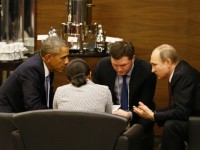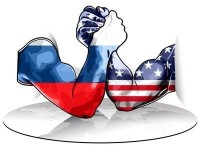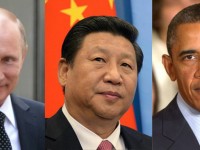Ma Shikun, Senior Journalist, the People’s Daily
Jan 19, 2017
Unlike in the confrontation 1970s, China and Russia have established a comprehensive strategic partnership and see eye-to-eye on key international issues. The US and Russia, meanwhile, have many strategic conflicts and are unlikely to develop a close relationship, despite President-elect Trump’s possible wishful thinking.
Sun Chenghao, Fellow, Center for International Security and Strategy, Tsinghua University
Jan 16, 2017
Many factors will impede efforts by the incoming US president to create a warmer relationship with Moscow. But even if U.S.-Russia détente is around the corner, a reversed version of the “Nixon moment” — in which the U.S. holds hands with Russia to balance China — is not a logical outcome of this triangular balance of power. How China and U.S. deal with challenges in their bilateral relationship, from trade to the South China Sea, will shape China-U.S. relations in the next stage.
Yu Sui, Professor, China Center for Contemporary World Studies
Jan 16, 2017
Trump could improve trust between Washington and Moscow by persuading NATO to slow the pace of its expansion or withdrawing troops from the Russian border, but even Russia does not imagine the new US government will abandon NATO expansion in a hurry. Nor will Moscow embrace the US at the expense of its relationship with Beijing. China, meanwhile, will continue to pursue a new type of great-power relationship with the US while seeking to work more closely with Russia, and look for more areas where their interests converge.

Wu Sike, Member on Foreign Affairs Committee, CPPCC
Nov 17, 2015
If big powers show courage and set aside their differences, and work together in a just, balanced intervention under the framework international law, they will not only help the Syrians out of hardship and avoid long-term instability in the region, they may also find a new way to prevent similar armed conflicts in the future.

Yin Chengde, Research Fellow, China Foundation for International Studies
Jul 22, 2015
The US pursues increasingly aggressive strategies against Russia, partly because it perceives Russia’s national power as too diminished to wage a meaningful fight, and now it has to face the music. Washington must cool things off by abandoning confrontation.
Mar 20, 2015
Last Friday, the United States released its updated Cooperative Strategy for 21st Century Seapower (CS-21). One of the biggest critiques of the first Cooperativ

Ted Galen Carpenter, Senior Fellow, Randolph Bourne Institute
Nov 10, 2014
As U.S. relations with Russia continue to deteriorate, Russia has turned to China in search of a regional ally that can counterbalance the U.S.-led NATO bloc. Now, Ted Galen Carpenter explains how China has two foreign policy objectives at risk due to the increased tensions.
Robert Haddick, Former US Marine Corps Officer
Sep 30, 2014
Although Russia’s compliance with the Intermediate Nuclear Forces Treaty has been called into question, Robert Haddick posits that the continuation of the treaty hinges on the rise of China’s military capabilities and the budgetary constraints hampering the United States’ military strategy in the Asia-Pacific.
Dan Steinbock, Founder, Difference Group
Sep 01, 2014
The Russia sanctions are likely to have an adverse impact on Russian, U.S. and Chinese economy and could push Europe to a triple-dip recession. A diplomatic solution could deter diminished global prospects.
Zheng Yu, Professor, Chinese Academy of Social Sciences
Jun 25, 2014
Given the recent rhetoric about Russia’s resurgence and the country’s attempt at controlling Ukraine, Zheng Yu analyzes and discusses US policies that are key to containing Russia. Additionally, Yu stresses that Russia will eventually and inevitably have to come to terms with these policies.